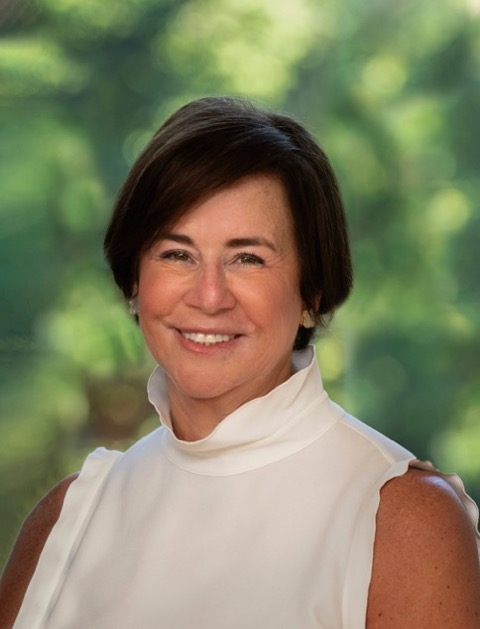Susan Lewis Solomont, Exclusive for The Times USA.
Ten years ago, my husband Alan and I were given what seemed like the opportunity of a lifetime: President Obama had asked Alan to serve as US Ambassador to Spain and Andorra. Our joint decision was easy: we said yes. Like most people who have been given a chance to live abroad, I was thrilled at the opportunity–at first.
As the time for departure drew near, however, my fear and anxiety began to rise. My husband’s role as an ambassador was defined. But what was my role?
By State Department ethics rules, I would not be permitted to bring my work with me. I was being asked to give up my career and assume a role that most describe as a 1950’s stand and smile behind your man role. It was unfathomable.
For over thirty years, I had operated in the world of nonprofit organizations: fundraising for organizations I admired (such as PBS); helping corporations and foundations make strategic philanthropic decisions; serving on the boards of many civic organizations in the Boston area, where I live. My identity had been shaped largely by my work for much of my life.
In moving to Spain, I knew forging a meaningful role for myself would be important. I wanted to play an active part in this exciting adventure upon which we were embarking. I would need to find meaning and value in whatever I ended up doing and make the best of a series of opportunities outside of what I had considered my “career” to that point.
What would that look like? How would I assign meaning to my work for which I would not be paid?
Here are a few ways I discovered it was possible to survive and thrive as I embraced my role as the partner of a US Ambassador. I offer these as strategies to anyone moving overseas for the chief purpose of a spouse’s job. Remember that your role is just as important.
Get creative
Whether a job is waiting for you or not, you will have to seize or even create new opportunities in order to find a role that is meaningful for you. Know that it will not be easy. In my case, the staff at the US Embassy in Madrid was already plenty busy, never mind figuring out how to fit someone in to their ongoing work. I had to advocate for myself and it helped to tether myself to something larger than myself. Staying focused on a mantra can help.
My own mantra was: “I am here to be an active part of the US Embassy Madrid and I want to help you in the work you do.” Pursue a life that aligns with your mantra, and don’t be afraid to be relentless about it!
Don’t let fear of your language competency hold you back.
My Spanish wasn’t fluent enough for the kind of networking and collaboration I wanted to do with existing organizations in Spain. However, I trusted
myself to figure it out–and you can, too. I joined a committee focusing on women’s leadership in the business world. I didn’t know what it would entail, nor had I met the women involved. The culture was new to me. So I listened to the members of the committee as much as I was able (sometimes with the help of a translator). I came to understand what some of their needs were. I learned that there was a lack of networking opportunities for women in Spain. An idea was hatched to gather my Embassy community members looking for employment and professionals. We could shine a light on the amazing work both Spanish and American women were doing while at the same time offering an opportunity to network and learn from each other.
It’s important to be patient as you learn a new language or gain fluency. Sometimes things can move more slowly than you would like, but don’t give up–especially on yourself. Slowly but surely, I saw members and then departments within the Embassy embrace our idea to build the Women’s Leadership Network, a series of events featuring top level women and entrepreneurs in journalism, social media, gastronomy, finance and a host of other fields.
This experience reiterated for me the importance of understanding others’ needs. This begins with listening to those around you rather than making assumptions. If the language barrier is high, it may take time. But it will be worth it to understand where you can make a meaningful contribution and where exactly your skills can be useful.

Trust your instincts.
This may sound simplistic, but don’t overthink. Doing so can prevent you from taking action. It’s okay to make mistakes. Your instincts didn’t need a passport or visa. They’re a part of you and should guide you as they always have.
Keep an open mind
Seizing opportunities means being flexible and keeping an open mind. The opportunities may not appear at first blush to be exactly what you’re seeking, but why not try? You may be pleasantly surprised. Experiment, learn from each experience, embrace the unknown. You will find that you’ll grow in the most wonderfully unexpected ways.
And remember: forging a new path for yourself in uncharted territory when the role that defines you suddenly changes may take hard work, but that’s okay. Working hard will pay off. So will persistence.
If things don’t pan out the way you’d hoped, remember that history has been shaped by people who keep trying, just like you.
From 2008 to 2012, Susan Lewis Solomont she served alongside her husband, Alan Solomont, in Madrid, Spain, where he was appointed as US Ambassador to Spain and Andorra under President Barack Obama. She was named International Woman of the Year by FEDEPE, the leading organization for Spanish women executives and directors. She holds a bachelor of science degree from Cornell University and a master’s degree in education from Tufts University. “Lost and Found In Spain: Tales of An Ambassador’s Wife” is her first book.






